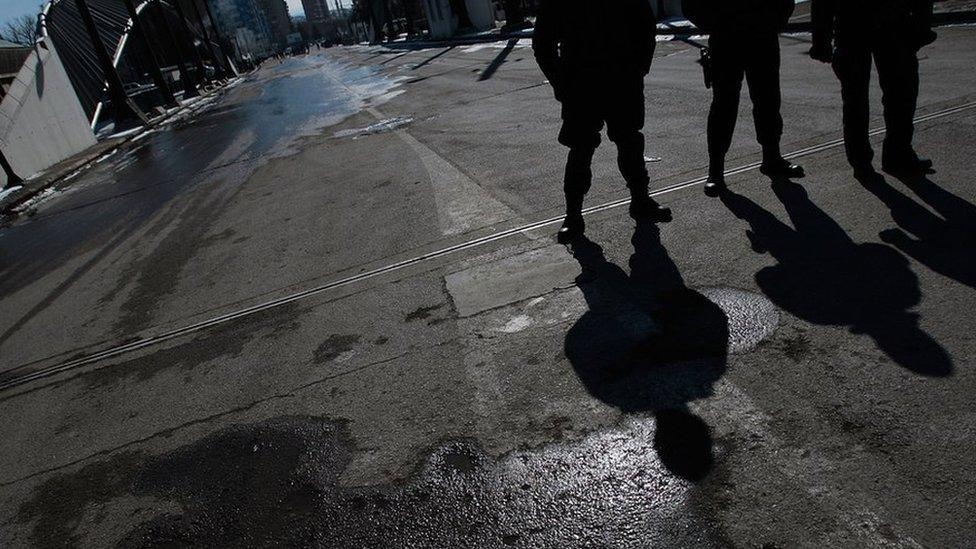Can Serbia's farming heritage survive?
- Published
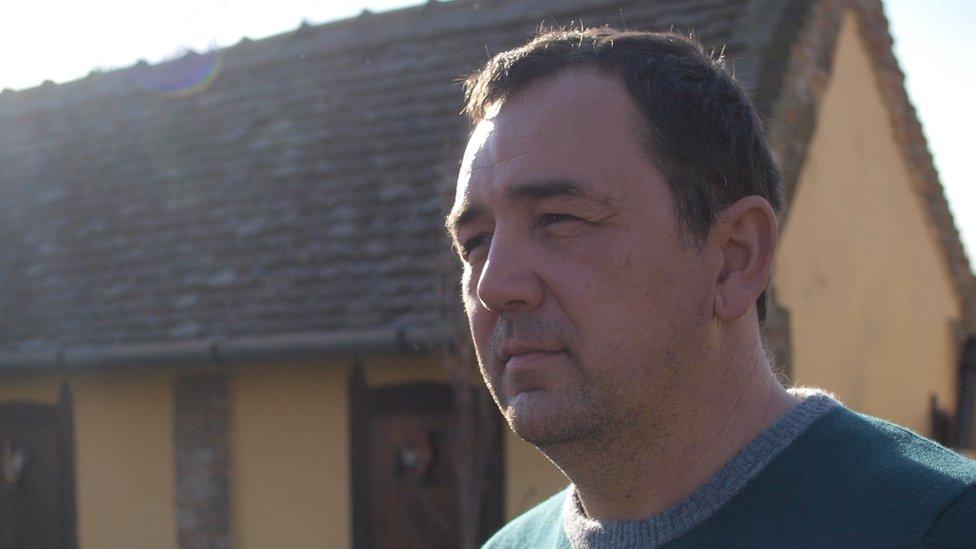
Now as the owner of a small farm in Serbia "you won't have the money you need for life," says Goran Matic
"That's the best quality land and soil in Europe," says Goran Matic, proudly waving a hand in the direction of the fields surrounding his farmhouse in Serbia's Vojvodina province.
Mr Matic is just warming up. Soaking up the winter afternoon sun, he delivers an extended eulogy-cum-reverie about the properties of the earth in this part of the country.
For those not initiated in the finer points of what makes one kind of soil better than another, it boils down to this: The Vojvodina soil is rich, dark and anything will grow in it.
The Matic family farm, Brkin Salas, is typical of the traditional Serbian model. It covers eight hectares (19 acres) and the fields are cultivated without the use of chemical fertilisers.
Mr Matic, like other farmers, calls the produce "organic not by paper, but naturally," because although they are passionate about the integrity of their methods, they have never gone to the expense and trouble of applying for official organic certification.
On the terrace in front of the farmhouse, Mr Matic's mother-in-law, Draginja, briskly dispatches, plucks and prepares guinea fowl to sell to local shops and restaurants. In the yard behind the buildings, chickens roam freely - perhaps counting their blessings.
It is a way of life that has changed little over the centuries. But now it is coming under threat.
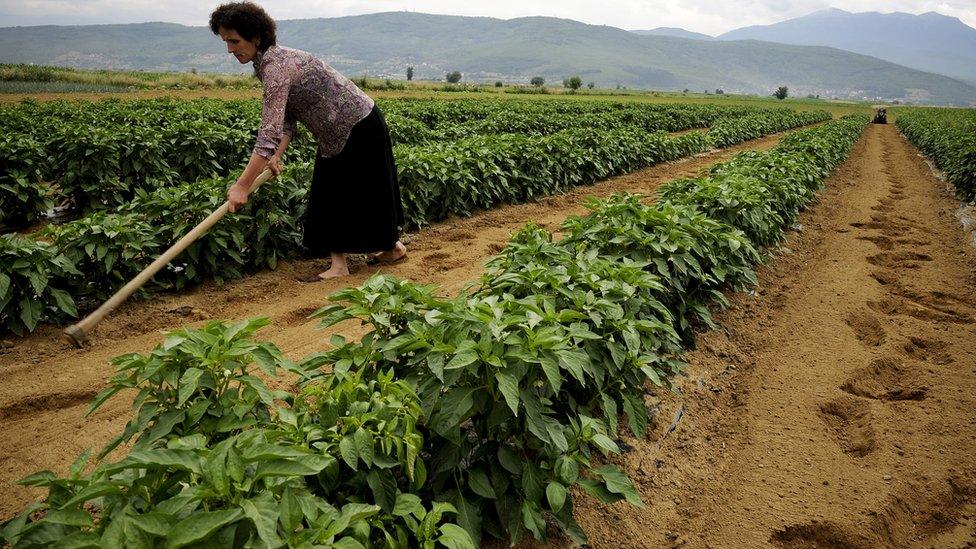
Serbia has traditionally been a farming country
"From history, people could live on a farm with 10 hectares," says Mr Matic.
"But now people can't live with that. If you don't have 100 hectares you can't live on a farm just from agriculture. You won't have the money you need for life. There are bigger owners,; the price of the produce is too low - and that's not good for small farmers."
"People must go to work somewhere else or for someone else - and they lose that traditional way of life."
Mr Matic and his wife Natasa have found another way to make a small farm work for them. They run Brkin Salas as a farm-stay, with rooms, dining areas and even a small adventure park for children.
Meals are sourced entirely from the local, "naturally organic" produce. And shelves groan under the weight of farm-made jam, ajvar (red pepper relish) and rakija (fruit brandy) for visitors to buy.
To complete the portfolio, Mr Matic also works as a land manager for the Orthodox Church.
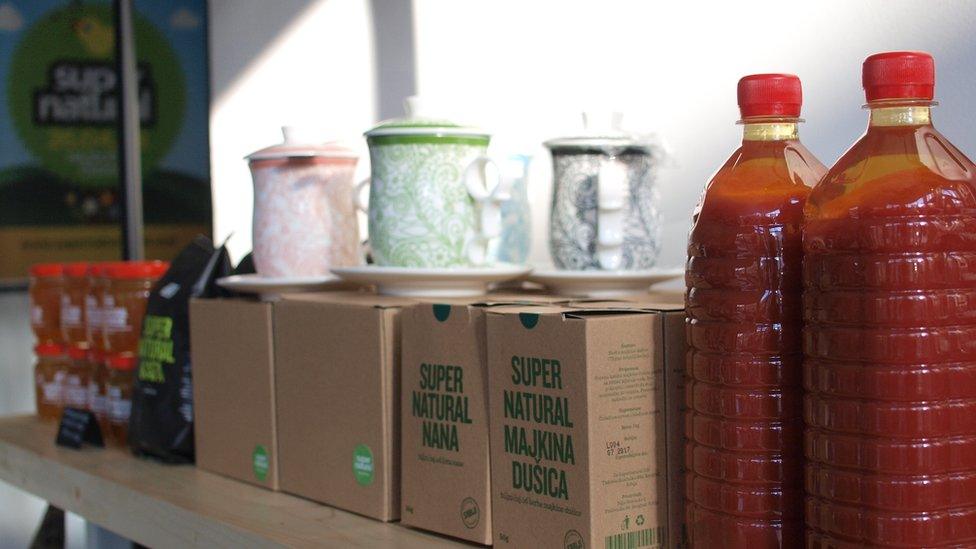
Many of Serbia's products are described as "organic not by paper, but naturally," because the farmers have never gone to the expense or trouble of applying for official certification
But the need for larger domestic farms represents just one of the challenges to Serbia's agricultural traditions. The prospect of European Union membership has also raised concerns about the readiness of the country's farmers for increased competition.
These are still relatively early days in the application process. Serbia formally started membership negotiations two years ago. But so far work has started on only two of the 35 "chapters" dealing with conditions for membership.
At this rate, it will be many years before the EU welcomes Serbia as a member. But it is not too early for the country to feel the force of agricultural competition.
EU sanctions against Russia have led to unintended consequences. Facing an embargo on exporting their produce to one of their largest markets, European famers have been seeking alternatives. Among them is a country which has not joined the sanctions: Serbia.
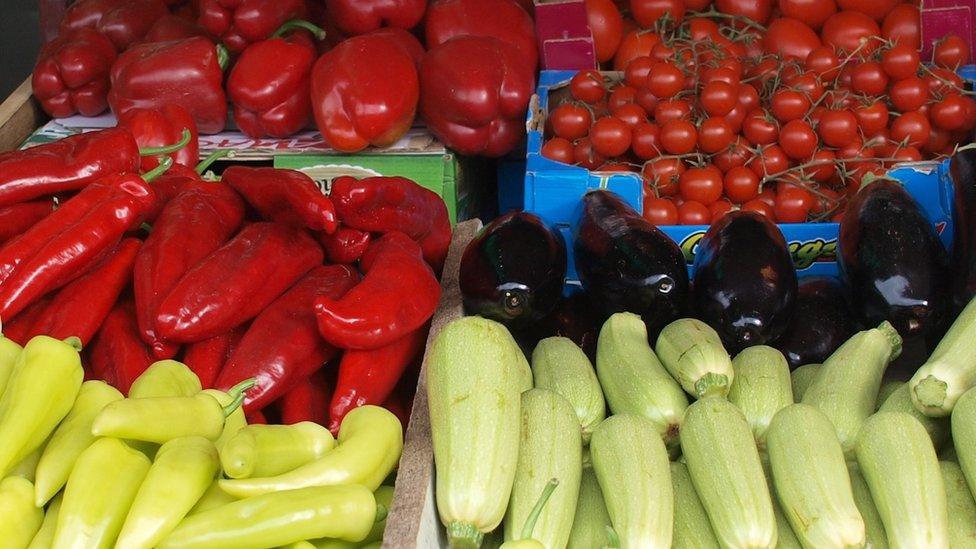
Serbian farmers are struggling to compete with cheaper imports from the EU
"It's the biggest problem now in Serbia - very cheap products from the EU," says Dragan Glamocic, a former agriculture minister and current adviser to Serbia's prime minister.
"There are very cheap meats, especially pork, and very cheap milk products. Serbian farmers are very small - they have few hectares, few animals - and they cannot be competitive with the EU farmers. They have much better technology and knowledge.
"At the moment, Serbia is not ready to be in that fight."
Mr Glamocic fears that the recent glut of cheap produce from the EU may just be a taste of things to come, as far as Serbia's farmers are concerned. For a country which has long ear-marked agriculture as a key potential growth sector, that is a worrying prospect.
But there is another, more optimistic school of thought. It holds that Serbia can take advantage of its "naturally organic" heritage and more recent ban on genetically-modified (GMO) crops.
The country is already a leader in the production of GMO-free soy - and could exploit its reputation to find markets in the EU where people are becoming more concerned about food-sourcing.
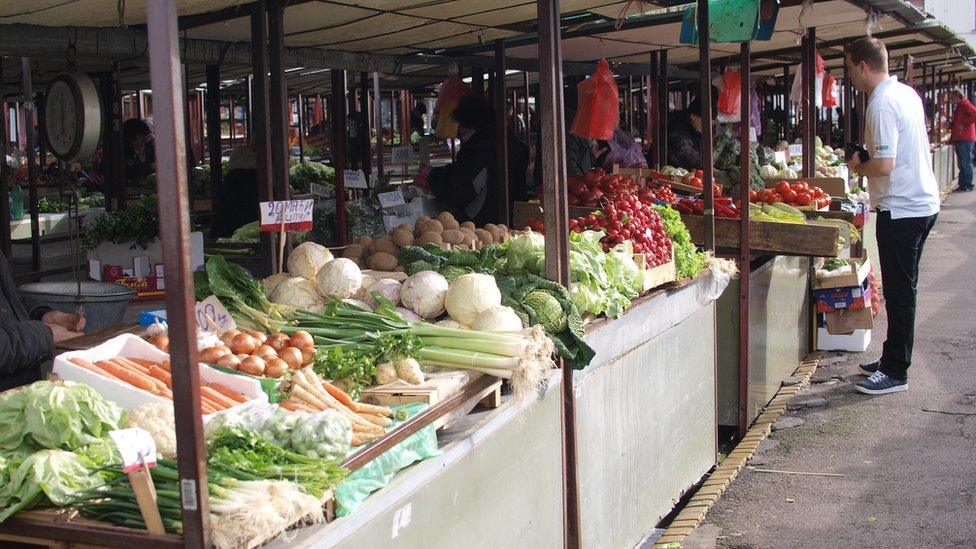
Strong rural links mean that farmers' markets are a common sight in Serbia
"It's a paradox - Serbia has had turmoil in the past 30 years, but that preserved our nature and biodiversity," says Srdjan Stankovic, the founder of the Belgrade-based environmental organisation, Supernatural, which also offers a range of traceable produce for sale in its city centre café and shop.
"Serbia has a lot to offer to the EU. We're famous for our food - I think the way forward is to work together and find the best solutions. Standardisation is not the answer - something that works in England won't necessarily work in Croatia."
Mr Stankovic agrees that at this stage, Serbia's farmers are not prepared for the challenges of EU membership.
But he says the country is still in tune with the seasons and the produce each one brings; shopping at farmers' markets is second-nature and strong links to rural roots mean that "everyone has a grandmother in the countryside".
This could all, perhaps, be harnessed to make Serbia into a European brand for quality produce. And at Brkin Salas, Mr Matic raises an eyebrow and smiles as he considers the future.
"I'm not afraid for our people," he says. "We always survive."
- Published2 September 2014
- Published26 August 2015
